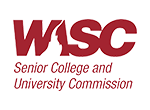
Family Nurse
Practitioner Certificate
4-week
COURSES
Start sooner and finish faster with our innovative course design.
Year-round
enrollment
Our admissions team reviews applications year-round.
200k+ Alumni Worldwide
Become a member of NU’s global community.
Program Overview
The Post-Graduate Family Nurse Practitioner Certificate will prepare advanced practice nurses to manage the care of individuals and families across the lifespan. This program is designed for nurses who hold a Master of Science in Nursing (MSN) or Doctor of Nursing Practice (DNP) or Doctor of Philosophy (PhD), who wish to advance their knowledge, education, and skills to practice in an advanced practice role as a FNP. Graduates are eligible to sit for the FNP national certification examinations offered by the American Nurses Credentialing Center (ANCC) or the American Academy of Nurse Practitioners (AANP). The program emphasis is to foster the FNP’s abilities to critically think; make differential diagnoses; use evidence-based findings to improve healthcare outcomes; and be accountable for the provision of healthcare to diverse individuals and families in the areas of health promotion, disease prevention, management of acute and chronic health conditions and primary care. The FNP provides clinical management of primary care conditions in a variety of clinics and community-based settings.
This certificate program is a non-degree, graduate-level program. Upon completion of the program, participant receives a Post-Graduate Family Nurse Practitioner Certificate.
The baccalaureate degree program in nursing, master’s degree program in nursing, and post-graduate APRN certificate programs at National University is accredited by the Commission on Collegiate Nursing Education, 655 K Street NW, Suite 750, Washington, DC 20001, 202-887-6791.

The Western Association of Schools and Colleges (WASC) accredits public and private schools, colleges, and universities in the U.S.
Course Details
Course Listing
Preparation for the Certification
- 3 courses; 15 quarter units
Course Name
First of two courses designed to meet the needs of the nurse practitioner student for advanced knowledge about pharmacological agents useful in the management of a variety of common clinical situations. It includes pharmacokinetics, pharmacodynamics and pharmacotherapeutics. Ethical/legal issues will be reviewed and standardized procedures will be covered. Not designed to supersede or replace dosage and treatment protocols established within the nurse practitioner’s setting for clinical practice.
Presents information expanding the student’s knowledge base related to current health patterns across the lifespan. Faculty will facilitate the students’ acquisition of advanced skills in collecting subjective data and performing an adult physical and mental status examination. Students interpret data acquired through assessment and results of diagnostic studies.
Provides pathophysiological principles and concepts essential for performing advanced clinical assessments, differential diagnoses, and therapeutic decision-making. Describes disordered physiology and clinical consequences of common disease processes. Analyses of the biophysical rationale are used during seminar, problem-solving exercises and case studies to recognize the pathophysiologic bases of clinical findings.
Requirements for the Certification
- 7 courses; 38 quarter units
Course Name
Second course of a two course series. Within each class of therapeutic drugs, the course examines clinical application, drug actions, interactions, reactions, and contraindications. The course will also include principles of prescribing and patient compliance.
Corequisite: FNP 683C
Development of clinical decision-making skills. Focus is the delivery of comprehensive health care, including health promotion, health maintenance, and the diagnosis and treatment of common acute and chronic illnesses. Assigned readings, lectures, class discussion, and case studies are used as well as supervised practicum in multicultural practice settings. FNP 683A and FNP 683C must be taken concurrently and both completed satisfactorily to progress.
Corequisite: FNP 683A
Application of theoretical knowledge in supervised clinical settings in the practice of caring for the adult and aged. The role of the family nurse practitioner in health promotion and disease prevention is emphasized. Required 180 preceptored/field experience clinical hours. FNP 683A and FNP 683C must be taken concurrently. Grading is S/U only.
Corequisite: FNP 684C
Focus on methods of health promotion/disease prevention, and assessment and management of common health problems in infants, toddlers, school age children, adolescents, and women from menarche through to the climacteric. FNP 684A and FNP 684C must be taken concurrently and both completed satisfactorily to progress.
Corequisite: FNP 684A
Application of theoretical knowledge in supervised clinical settings in the practice of caring for women and children. The role of the Family Nurse Practitioner in health promotion and disease prevention is emphasized. Required 180 preceptored/field experience clinical hours. FNP 684A and FNP 684C must be taken concurrently. Grading is S/U only.
Corequisite: FNP 685C
Prepare students to perform the advanced practice roles of manager, clinician, educator, researcher and consultant in the provision of primary care services across the lifespan to under-served populations. FNP 685A and FNP 685C must be taken concurrently and both completed satisfactorily to progress.
Corequisite: FNP 685A
Concentrated residency experience in which the student will critically and accurately assess, plan intervene and evaluate nursing experiences related to the care of individuals, aggregates, and nursing systems. Required 240 preceptored/field experience clinical hours. FNP 685A and FNP 685C must be taken concurrently. Grading is S/U only.
Certificate Requirements
The Post-Graduate FNP Certificate Program of Study includes 53 quarter units. Refer to the General Catalog section on graduate admission requirements for specific information regarding admission and evaluation.
Students must obtain at least 600 hours at an approved practicum site with a designated approved preceptor during the practicum courses. Student must maintain a cumulative GPA of 3.0 and must maintain a B (84%) in all core and specialty courses.
NOTE: Additional course fees apply. Course fees can be referenced in the general information section of this catalog.
Program Learning Outcomes
- Synthesize theoretical and empirical knowledge derived from the physical and behavioral sciences and humanities as a basis for professional advanced clinical nursing practice.
- Devise evidence-based health promotion and disease prevention strategies at the patient, family, organizational, community, and population levels for the purpose of improving healthcare outcomes.
- Utilize current technologies to deliver, enhance, and document care across multiple settings to achieve optimal outcomes.
- Advocate for culturally sensitive healthcare systems and policies that meet ethical and legal standards as a means to improve outcomes and reduce disparity.
- Model collaboration with interdisciplinary and intradisciplinary teams in healthcare systems delivering care to complex, multi-need patients, families, and communities.
- Analyze the impact of national and global health policy on the cost, quality, and access to care in diverse patient populations.
Admissions
Enrolling in a university is a big decision. That’s why our dedicated admissions team is here to guide you through the admissions process and help you find the right program for you and your career goals.
To that end, we’ve simplified and streamlined our application process, so you can get enrolled in your program right away. Because we accept and review applications year round, you can begin class as soon as next month, depending on your program and location of choice.
Learn more about undergraduate, graduate, military, and international student admissions, plus admissions information for transfer students. You can also learn more about our tuition rates and financial aid opportunities.
To speak with our admissions team, call (855) 355-6288 or request information and an advisor will contact you shortly. If you’re ready to apply, simply start your application today.

4 WEEK COURSES
Why Choose National University
- Four-Week Courses
- 75+ Degree Programs
- Online or On-Site
- Year-Round Enrollment
- Military Friendly
We’re proud to be a veteran-founded, San Diego-based nonprofit. Since 1971, our mission has been to provide accessible, achievable higher education to adult learners. Today, we educate students from across the U.S. and around the globe, with over 240,000 alumni worldwide.

“National University has impacted my career. You can immediately apply what you learn in class to your business.”
-Francisco R., Class of 2016
Useful Links

FLEXIBLE SCHEDULE

Year of You Scholarship
Do you qualify for a needs-based scholarship? Learn more about the NU Year of You Scholarship and other scholarship opportunities to unlock the door to your dreams!
Program Disclosure
Successful completion and attainment of National University degrees do not lead to automatic or immediate licensure, employment, or certification in any state/country. The University cannot guarantee that any professional organization or business will accept a graduate’s application to sit for any certification, licensure, or related exam for the purpose of professional certification.
Program availability varies by state. Many disciplines, professions, and jobs require disclosure of an individual’s criminal history, and a variety of states require background checks to apply to, or be eligible for, certain certificates, registrations, and licenses. Existence of a criminal history may also subject an individual to denial of an initial application for a certificate, registration, or license and/or result in the revocation or suspension of an existing certificate, registration, or license. Requirements can vary by state, occupation, and/or licensing authority.
NU graduates will be subject to additional requirements on a program, certification/licensure, employment, and state-by-state basis that can include one or more of the following items: internships, practicum experience, additional coursework, exams, tests, drug testing, earning an additional degree, and/or other training/education requirements.
All prospective students are advised to review employment, certification, and/or licensure requirements in their state, and to contact the certification/licensing body of the state and/or country where they intend to obtain certification/licensure to verify that these courses/programs qualify in that state/country, prior to enrolling. Prospective students are also advised to regularly review the state’s/country’s policies and procedures relating to certification/licensure, as those policies are subject to change.
National University degrees do not guarantee employment or salary of any kind. Prospective students are strongly encouraged to review desired job positions to review degrees, education, and/or training required to apply for desired positions. Prospective students should monitor these positions as requirements, salary, and other relevant factors can change over time.